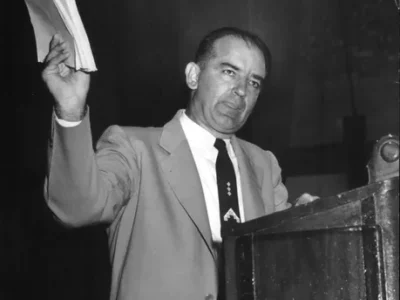Scenarios
We live in an uncertain world. Scenario planning can help.
When Shell Oil produced a sophisticated scenario of the path to a carbon neutral world in 2070, a lot people took notice. Shell concluded that the “relevant transformations in the energy and natural systems require concurrent climate policy action and the deployment of disruptive new technologies at mass scale within government policy environments that strongly incentivize investment and innovation.” Shell has long been a leader in scenario planning in the business world. In a rapidly changing world, we’re going to need a lot more of that kind of planning. The world simply isn’t predictable enough for us to pick a single likely future and plan confidently on that basis.
In fact, some things that look like predictions are actually better understood as scenarios. For instance, the Energy Information Agency produces what it calls “projections” of future energy needs and supplies. I’ve long been puzzled by the agency’s insistence that these are not predictions. And in fact, judged as predictions, they have a really lousy track record. But these “projections” are best understood bas business-as-usual, baseline scenarios. They assume no technological or policy changes, and they ignore potential political upheavals such as oil boycotts or revolutions in the Middle East. Everyone knows that one of those things or another is sure to happen over a 10-20 years timeframe, so it would be a mistake to think this scenario is likely to materialize. But it does provide a reference point from which to assess how disruptive events of different kinds would shift the energy system.
Climate adaptation is another area where scenario planning is important. There are many uncertainties in forecasting how climate change will impact particular areas years in the future. There are uncertainties in global climate models about impacts, big uncertainties about the future trajectory of emissions, and difficult issues in downsizing global projections to particular localities. Yet infrastructure requires long term planning. Scenario planning is especially helpful in this context. In fact, RAND has actually devised some nifty computer models to do scenario analysis for water infrastructure.
There is a long history of using worst-case scenarios in environmental assessment – in fact, at one point this was actually required for environmental impact statements until the regulations were changed. These scenarios can be useful counters to the natural tendency of project planners toward excessive optimism. But it’s too simplistic to think that scenarios are only useful to identify overlooked risks. They’re also useful in planning long-term strategies, as Shell and other companies have discovered.
There are undoubtedly settings where the future is highly predictable, or at least enough so that we can be confident about giving odds. But we live in a world where that often isn’t true, not least because of climate change.
In short, it’s a good time to play “What If?”
Reader Comments
One Reply to “Scenarios”
Comments are closed.







Trump Offers Public Praise to Pruitt:
“…….President Trump reaffirmed his support for embattled Environmental Protection Agency (EPA) chief Scott Pruitt Wednesday, telling him the agency is “doing really, really well.”
Trump’s praise came during a week when new controversies are cropping up regarding Pruitt’s management of the agency, including that he used his position and an aide to try to get his wife a fast food franchise and that he had another aide do personal tasks such as trying to buy a used Trump International Hotel mattress.
“Thank you Scott, very much. EPA is doing really, really well,” Trump told Pruitt during a signing ceremony for a law meant to reform the Department of Veterans’ Affairs. “Somebody has to say that about you a little bit, you know that, Scott…….”
http://thehill.com/policy/energy-environment/391036-trump-offers-public-praise-to-pruitt